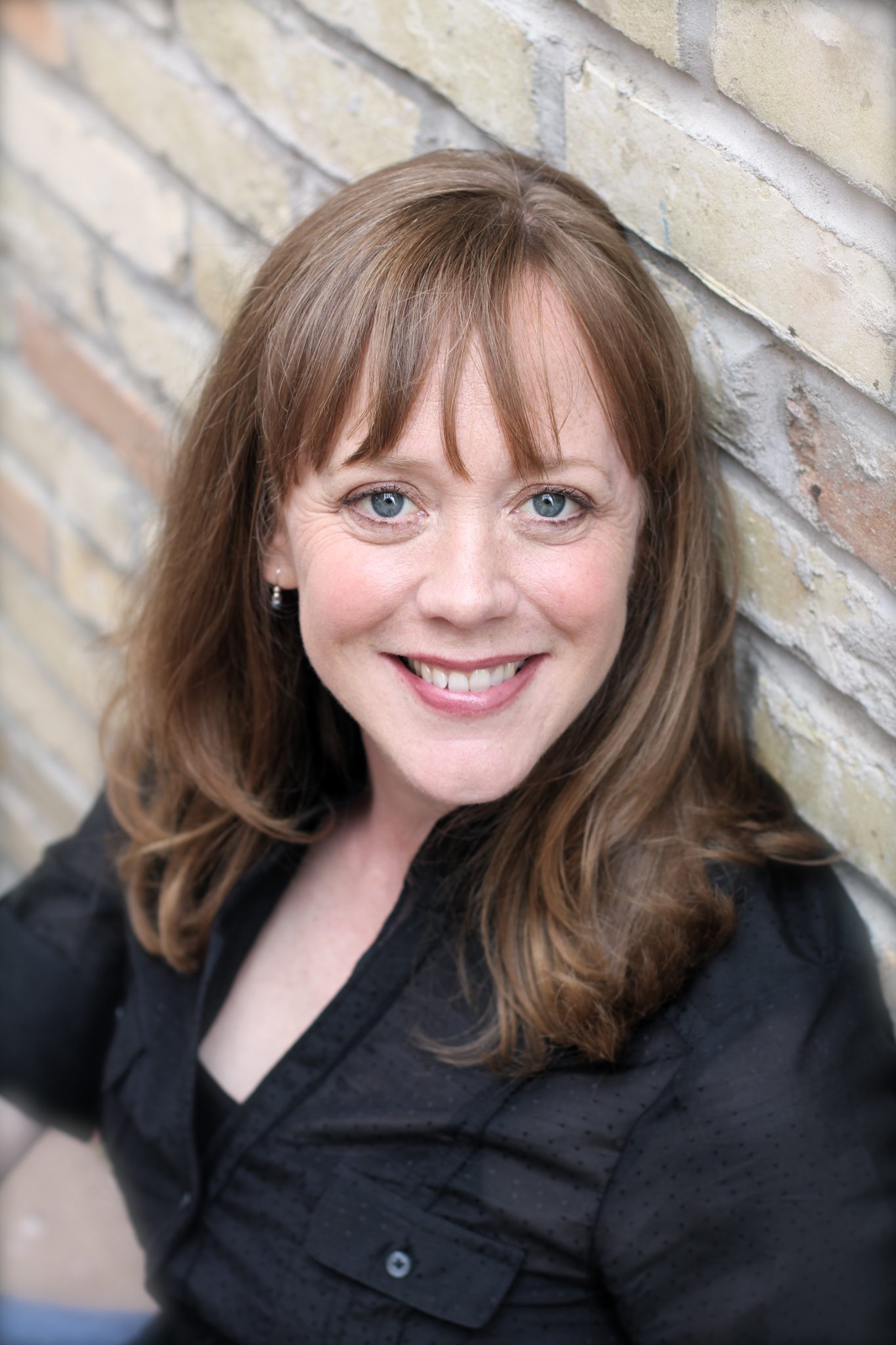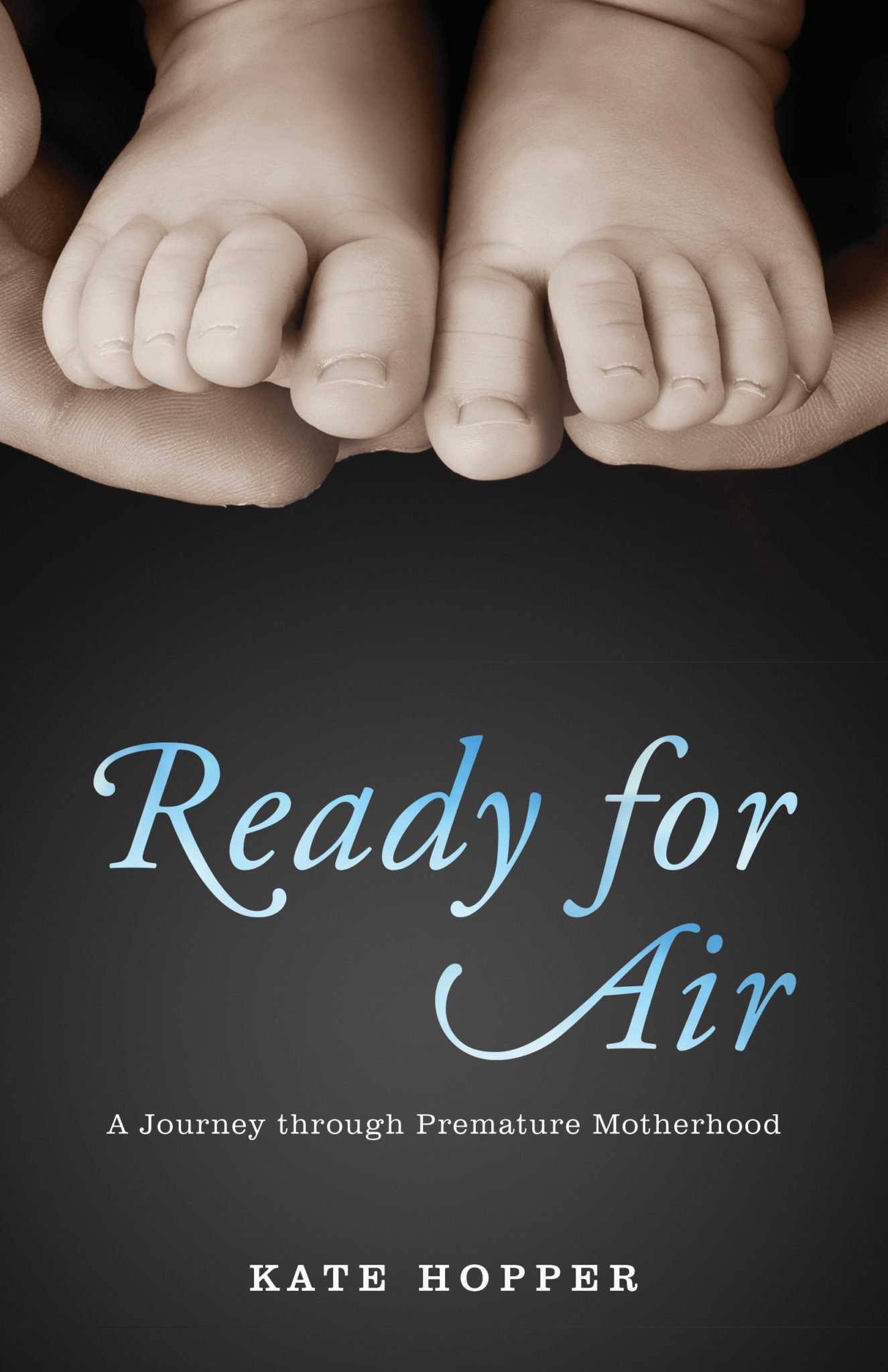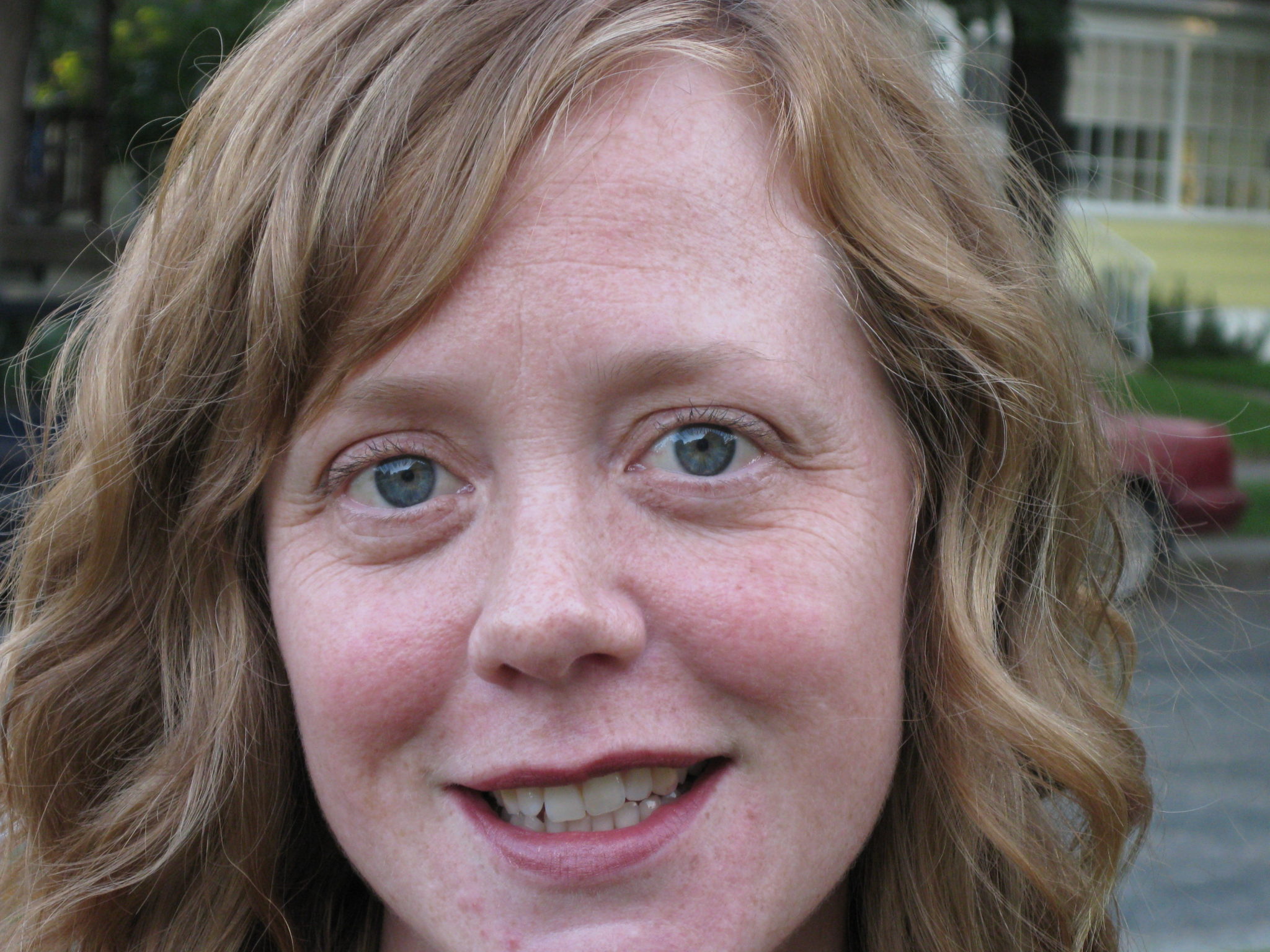AMY SHEARN Interviews KATE HOPPER
I remember when the memoirist and teacher Kate Hopper told me she was pregnant. We were in the same MFA program at the University of Minnesota, and I had a bad case of baby fever, with an accompanying furtive addiction to mom-blogs. So I remember feeling so happy for Kate, and probably a little jealous – she was going to have a BABY! Kate was a little older than me and a year ahead in our program, and she seemed to me a picture of grace. There was something very centered about her; her writing was clean and crisp and assured. I knew she was going to be one of the MFAers to publish. (It’s kind of hard to remember how dizzyingly obsessed I was with that benchmark then, like with having a baby – how crucial and impossible these things seemed!)
Then one day I saw Kate in the hallway and barely recognized her. Was this what pregnancy looked like? She looked puffy and uncomfortable. A few days later, we heard she’d given birth. There had been a problem that had caused the puffiness; she’d had a C-Section, the baby was early. In the clueless way of people without children, I thought, probably, “Huh. Okay. Glad she’s okay.” I wouldn’t find out until the next year, when Kate rejoined the program after a leave of absence to care for her tiny new baby, everything she’d been through. This was not the new motherhood I’d been spying on in blogs. She was not working on her book at the coffee shop while her baby snoozed in the stroller. She was not brunching with her baby effortlessly in the carrier, or showing off her little girl at a grad school reading. Reading snippets of her memoir in workshop, I realized how alone Kate had been during this scary, stressful time – as if she’d gone to another planet, with its own language and ecosystem. Planet Premature Baby.
I am so happy that Kate is now celebrating her daughter’s tenth – tenth! – birthday, along with the publication of this beautiful, brave book. Her story is sure to be a crucial one for parents of premature babies, but it’s also a book for anyone who has ever had her life go a bit askew. As Kate writes in her memoir, “I followed the rules, I did what I was told, and it didn’t matter.” Parenting, after all, ends up being about learning how little you can control things.
Kate was kind enough to answer my questions about Ready For Air: A Journey Through Premature Motherhood, which is now available from University of Minnesota Press. – Amy Shearn
MUTHA: Kate, I want to first say that I am so happy to see this book in print! I remember loving the passages I read when we were grad students together, and feeling so certain this fascinating memoir was instants away from publication. That was ten years ago. Can you talk a little bit about the journey to publication? What was it like to revisit this book after so much time, especially now that your daughter is a sparkling, healthy 10-year-old?
KATE HOPPER: Thank you so much, Amy! This has been a very long haul for me. I began writing it when Stella was five months old, during my year off from the MFA program after Stella’s birth. When I returned to school the fall of 2004, it became my thesis, and I was about half finished with the first draft when I graduated from the program in 2005. I took the next two years to finish writing, and then I revised and found an agent. In 2007 and 2008 the book was shopped around for a while and rejected for being too dark, not having a market, etc. etc. This is when I decided to rewrite it from scratch. I had a better sense of what the real story was at that point, and I wanted to write it again with that in mind. So I printed out the whole manuscript, opened a new Word document, and started to write the book again, from the beginning. That process took another two and half years. I finished it (again) in September of 2011, and did more revising. It finally sold to University of Minnesota Press October of 2012.
It’s really wild that it’s being published now, almost exactly ten year after Stella was born. I recently wrote a letter to Stella, which she let me post on my blog, and in that I talk about how the events of her birth have lost their hold on me. But it’s funny, because as soon as I start to read the book, I’m right back there in the NICU, full of fear.
MUTHA: In your wonderful writing manual for mothers, Use Your Words, you share that you began writing Ready for Air in part to deal with feeling traumatized in the wake of your unexpected birth story. When did you know you were writing a book?
KATE HOPPER: In the early weeks/months of writing, I was just vomiting out images and memories and impressions to get them down on paper. But I knew I would be returning to graduate school the following fall and I knew I’d have to write a thesis, so I really began to think of it as a book pretty early on. And I thought, oh finally I’m writing something that has a market. Little did I know that it would be rejected for “lack of a market” so many times before it found its home with University of Minnesota Press.
MUTHA: I want to ask you a little bit about the form of the book. Rereading the book now, I’ve noticed that there is a claustrophobic feeling to the narration, heightened by your use of present tense, that mimics those hazy, hormonal days of new motherhood when it’s hard to see the forest for the trees so to speak. Was this intentional? How did you decide what shape this book would take, how much story to tell?
KATE HOPPER: Yes, that’s exactly what I was going for. I wanted readers to walk into the NICU with me, to really understand what that felt like to live there day-to-day. So I chose to use present tense for its urgency and sense of immersion. That feeling loosens as the book nears the end, when things are less claustrophobic for me.
One of the things I really had to think about as I was writing was how to create breathing room for the reader. It is so intense in parts, and I had to temper that reality with some time-outs from the action. So I used backstory and humor in order to give the reader a break now and then without diminishing the speed and the sense of foreboding, which is what life often feels like when you have a baby in the NICU.
MUTHA: I know so many mothers who feel unsettled by their birth experiences, or rattled by the difficulties of parenting. How can writing help new mothers in particular? I’ve talked to Jennifer Gilmore, author of The Mothers, about how she found herself going through this crazy process of domestic adoption and wanting to remember it, which is why she wrote a novel based on her experiences even though they were incredibly painful. This struck a chord with me, having written about how hard even the most “normal” of mothering experiences can be. What is the value in remembering the difficulties? Why do we want to record it at all?
KATE HOPPER: I think writing about the difficulties inherent in any mothering experience does two important things. First, it helps us process what we’re going through. Whenever I get the hard stuff down on the page, it loses some of its power over me. Then I can figure out what I think about it, what sense I want to make of it. Writing about difficult experiences also helps break down those myths of motherhood (i.e.; that it’s the most natural thing in the world, that you’ll love your baby immediately, etc.).
Secondly, these hard stories need to be written so that other mothers know it’s okay if they experience a similar thing. You aren’t crazy! You aren’t a bad mother! I always encourage my students to write toward their fears, write those things that they’re too afraid to say out loud. Because, as one of my students said, “Every time someone has the courage and honesty to write about [situations and emotions] that are difficult, it normalizes the experience for another mother down the line. And our shame and fear and isolation get broken down a little more.” I love that.
MUTHA: I have a friend whose first baby was born extremely premature, and who had a completely normal pregnancy and birth with her second baby. She’s talked about feeling a little guilty that she was able to love and bond with her second baby so completely and immediately, while her feelings surrounding her first baby were more fraught. She had a hard time feeling like a mother when her baby was in the hospital and she was home, something you write about as well. Have you had any experiences like this with your two girls? What do you think makes someone a mother?
KATE HOPPER: Oh yes, absolutely. When Zoë was born full-term via C-section in 2008, I was surprised how horrible I felt that Stella didn’t get to experience a “normal” birth. When Stella was in the hospital, Donny and I felt bad leaving her, but most of the attention was on us—how we felt about it. But after I experienced what it should be like (holding your baby right away, nursing, going home together), I felt so bad that Stella had missed out on that. So after Zoë was born, I didn’t want her out of my sight. I called her this baby, that baby, believing that I could somehow make her into a combination of both my daughters, somehow relive Stella’s first weeks through Zoë, somehow make up for not being with Stella every minute of every day while she was in the NICU. I was trying to love Zoë, protect Zoë, enough for both of my daughters. I knew it was irrational. I knew it was hormones, inflating my thought process, but I couldn’t help it.
To address your second question, I think motherhood is really a state of mind. I didn’t feel like a mother after Stella was born, but that’s because I wasn’t doing any of the things I thought mothers would do: nurse and cuddle and change diapers. We had to ask permission to do anything for her, and in that situation it really took me time to grow into feeling like a mother.
MUTHA: Is Stella interested in this book? Has she read any of it? What does she think of the story of her birth?
KATE HOPPER: She is interested, I think. I’ve been writing it and talking about it for basically her whole life, so she knows about it and she’s proud to have been a preemie. But it’s not a book I’d want her or Zoë to read until they’re older. There’s a lot of darkness in there, so I want her to be old enough to understand some of that and to be able to have a discussion with me about it.
MUTHA: You’ve written a writing guide for mothers, a memoir about motherhood, taught classes for mother-writers, and are an editor at Literary Mama. What’s the best piece of advice you have for mothers who want to write? Or writers who want to be mothers?
KATE HOPPER: I think the easiest place to begin writing your mother stories is with a detail, an image. It was with one or two sensory details that I began writing Ready for Air: the image of my daughter on a blanket on her open warming bed; the sickly-sweet smell of the NICU. These are the details that helped me dive into my narrative. So I always tell moms interested in writing to think of a moment that’s particularly vivid, a moment they don’t want to forget, and start with that. Write it in as much detail as possible. And then figure out how to carve out a little time each week to sit down and do this, to put words on the page. You don’t needs hours and hours. It’s amazing how much you can get down in a half hour a week.
I think a lot of women writers who aren’t mothers worry about how motherhood will affect their work. I remember a writer saying to me (when I was pregnant with Stella), “Oh I’d never do that. My writing is too important to me.” People choose to have kids or not have kids for any number of reasons, but I wouldn’t let fear that you will never write again stop you from becoming a mother. I’m actually much more dedicated to my writing now than I was before I became a mother. I don’t always have as much time as I’d like, but the time I do have is spent much more efficiently than before I had kids. If I have an hour, I write for an hour. None of that old procrastination!
Thank you so much, Amy, for these fabulous questions!
MUTHA: I hear you on the efficiency. I did this interview during the one hour when my kids’ school days overlap. And Kate, you and I both have gotten worlds worth of writing material from the human drama that is mothering. Thank YOU, Kate, for this brave book, and for all you do for mother-writers everywhere!









